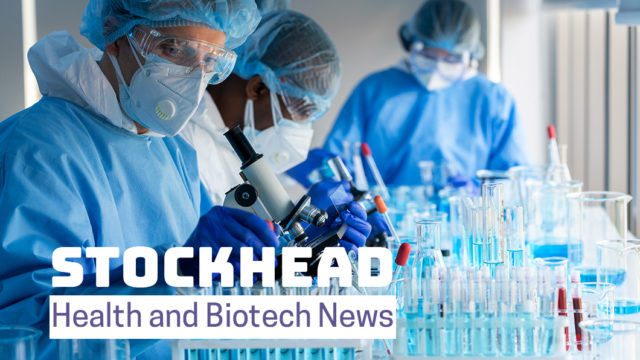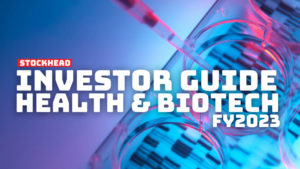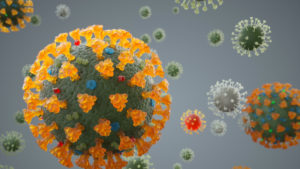Has there been a better time to be a supplier of Covid-19* rapid antigen tests (RATs) over the last six months?
Yeah … and nah.
Naturally, demand skyrocketed when the walls of Fortress Australia tumbled down (WA hermit kingdom included) and the Omicron variety romped across our big brown land.
Surfing the tsunami of demand, Atomo saw its revenues rise by 53 per cent in the December half of 2021, with a solid March quarter also expected.
But did this result in flow-on prosperity for shareholders? Nah – Atomo shares have lost more than 60 per cent of their value over the last six months.
Pre-Christmas, rapid tests became accepted as an at-home testing method in preference to the more reliable polymerase chain reaction (PCR) tests for which people queued for hours … and, sometimes, more hours.
Authorities all but gave up on PCRs (aka Patience Certainly Required) after a huge pathology lab backlog meant that Omicron victims were getting their results after their seven-day isolation period.
“It’s an interesting environment for a diagnostics company,” says Atomo CEO John Kelly.
*Don’t write in: strictly speaking the tests are for severe acute respiratory syndrome coronavirus-2 (Sars-Cov-2), the underlying virus that causes Covid-19.
Entering the Atomo-ic age
A native of Northern Ireland’s scenic North Antrim Coast and with a background in product development, Kelly co-founded Atomo in 2010 because the existing blood-based tests resembled a clumsy chemistry set suited only for professional use.
Atomo listed April 16, 2020, having raised $30 million at 20 cents apiece.
At that point, Atomo had sold more than 1.3 million Covid tests, globally. Before you could say cytokine storm, the tests were being shipped to Europe under a ‘white label’ arrangement with French diagnostics house NG Biotech SAS.
Technically speaking, the tests are lateral flow immune-assays. This involves a liquid sample (blood) being absorbed into a sample pad, ensuring accurate and controlled flow. Reagents bind to the target substance, creating a coloured line in the case of a positive test.
The tests are either a finished product in a nice package, or a naked device to which “original equipment manufacturers” can add their own test strip
A key feature of the underlying device is that it allows for self-administration, thus reducing the risk to healthcare workers. Atomo’s platform can be tweaked for any number of purposes, including bacterial-versus-viral and pregnancy tests.
Malaria, hepatitis C and Ebola tests are also being targeted.
Where Atomo fits in
In essence, Atomo currently supplies re-badged antigen tests from the US manufacturer Access Bio.
A key limitation for that is, to date, the tests have been for professional use: they need to be administered and interpreted by a health professional or someone within a company trained to do so.
Atomo is pursuing Australian Therapeutic Goods Administration (TGA) approval for a home-based variant and is working on commercialising a more precise swab-based rapid test for the home market.
Under a revised deal with Access Bio, struck last October, Atomo negotiated the right (but not the obligation) to purchase 20 million Access Bio tests by December 2022 – half of them professional tests and half of them home tests.
Kelly said that unlike most other Access Bio distributors, Atomo was protected by clauses that require Access Bio to deliver the kits within a reasonable time.
Naturally, this helped Atomo when RAT supply was tight.
Well done, almost everyone …
In early 2022, the TGA ordered a review of all 66 RAT tests approved locally, as well as those in the approval pipeline.
The ubiquitous Doherty Institute was engaged to do the grunt work.
Not surprisingly, the TGA was keen to ascertain whether the tests actually work for both Omicron and likely future variants.
“Variants of the virus due to mutations in the protein target of the genome may alter the structure of a viral protein,” the TGA said.
“As a result, tests kits may no longer be able to detect the virus, leading to false negative results.”
Well, the results are in … sort of.
On March 15, the agency reported the results from 80 kits, for which their manufacturers provided proof of efficacy.
Of these, only one test didn’t make the grade and was suspended from the Australian Register of Therapeutic Goods.
The TGA stresses the results are based on data provided by the manufacturer, with the results from the Doherty validation process released “as testing progresses”.
Finances and performance
Atomo reported revenue of $7 million (including a $1.65 million licence and settlement fee from Access Bio) for the December 2021 half year, up 53 per cent year on year.
This amount consisted mainly of $4.51 million from the Covid tests, $770,000 from the HIV tests and $1.65 million from Access Bio.
As a guide to the elevated sales trajectory, Atomo also reported revenue of $4.6 million for the second (December) quarter, $3.2 million from product sales averaging 90,000 kits per month.
Management expects a robust third (March) quarter. After all, the company sold more tests in January than the 420,000 units sold in the whole of the December half.
From a base of 70 customers, the company added 50 more from sectors including resources, critical essential services and aged care.
Not surprisingly, Atomo’s profit margins on the kits improved and were expected to expand further.
“We are careful not have been seen to be taking advantage of the situation, but margins have improved into the third quarter,” Atomo chief finance officer Will Souter said in January.
“We have a number of corporates, such as in the resources industry, who value having a good quality supply, a product they understand and support.”
Atomo shares have traded as high as 52 cents (just after listing in April 2020) and are currently changing hands at their lowest point in the company’s short listed life.
Of course, Atomo is not the only life sciences play to see its valuation crunched as investors become more risk averse.
But for broker Canaccord, February’s half-year numbers “disappointed on a number of fronts” including a lower-than-expected gross margin and higher operating costs flowing from supply chain issues.
Post announcement, the shares tumbled from 18 cents to 14 cents.
Atomo (ASX:AT1) share price today:
Bowling over the Grim Reaper
Kelly also notes a “significant improvement” in the HIV self-test business, with the kits sold via distributors Viatris and Owen Mumford (Europe). The company reports keen demand from India, Africa and South East Asia.
Atomo distributes its self-administered HIV test via Mylan Pharmaceuticals under an agreement covering 130 countries (Mylan being one of the biggest providers of HIV medicine).
Under relaxed TGA rules here, the company can now supply to pharmacy channels as well as via its website.
Kelly says the changes bring HIV in line with Covid.
“This playing field for rapid testing has now opened up,” he says. “Until quite recently that was a market [that] regulators were supportive of and we think that offers a lot for us as a point of care test provider.”
Coming up
Atomo’s growth prospects include its rapid swab device, which simplifies the steps of swab home testing.
This not only covers Covid market but is equally applicable to other infectious diseases such as sexually transmitted infections (STIs) and respiratory conditions such as the good ol’ ’flu.
The company expects to make further announcements about what the product will look like and is also talking to potential commercialisation partners.
“We are broadening our product base,” Kelly says.
“Most demand during the pandemic has been for swab-based tests. Our tests are recognised for their utility and convenience and reliability. But we want to be in the largest section of the market and that’s swab based.”
Given the product is an accessory to current tests, any regulatory approval is expected to support numerous applications.
Advance Australia where?
With import terminals groaning with container loads of imported RATs, a pertinent question is whether Australia should develop its own RAT-making capacity – and whether that’s something Atomo might pursue.
“The short answer is: no,” Kelly says.
“We have spoken to Federal and State Governments at various times over the last 15 months, with a view to onshore production.
“The response has been unfortunately quite lacklustre and disappointing and I believe other manufacturers have voiced other frustrations about the lack of foresight from government.”
So as the man said: that’s a hard ‘No’.
Dr Boreham’s diagnosis:
When we last covered Atomo in April 2020, shortly after the stock listed, Kelly presciently opined that Covid-19 would be around for a number of years.
“It’s not an Ebola type situation that disappeared in the short term,” he said.
Atomo is one of the few ASX-listed Covid-testing exposures, the others being Anteotech, Genetic Signatures, Lumos and pathology group Australian Clinical Labs, as well as the yet-to-list Ellume.
As Atomo gnaws away at the RAT market, a moot point is how long the sales boom will last. The emergence of another sub-variant, renewed lockdowns in China and stubbornly high case numbers suggests that once again we may have been lulled into complacency.
As with hand sanitiser, profits are likely to be crimped as the market becomes glutted with RAT tests.
So, investor attention will turn to the other applications for the Atomo tests as well as the company’s penetration of the burgeoning telehealth market.
Kelly notes the whole Covid RAT thing has normalised at-home testing and “transformed the landscape for home-based healthcare”.
He adds: “We are in a great position to expand on that demand, not just for HIV and Covid but into consumer health and STI applications as well.”
Disclosure: Dr Boreham is not a qualified medical practitioner and does not possess a doctorate of any sort. But he does possess a number of rapid tests and still gives a RAT’s about Covid.
This column first appeared in Biotech Daily.
You might be interested in












